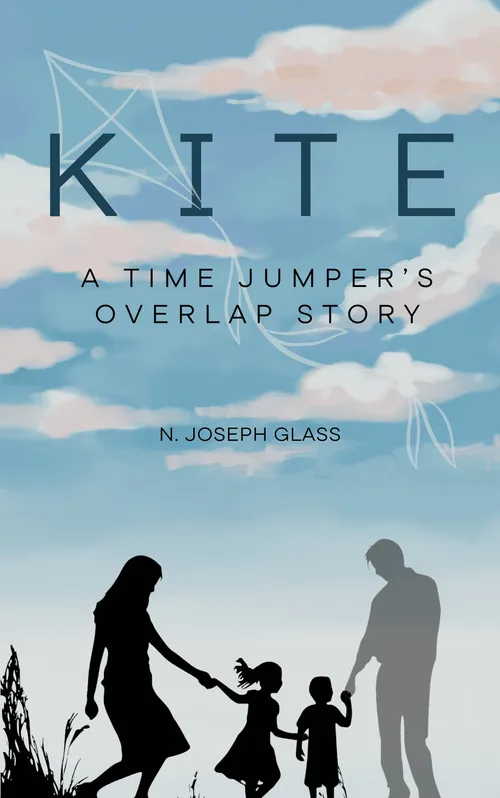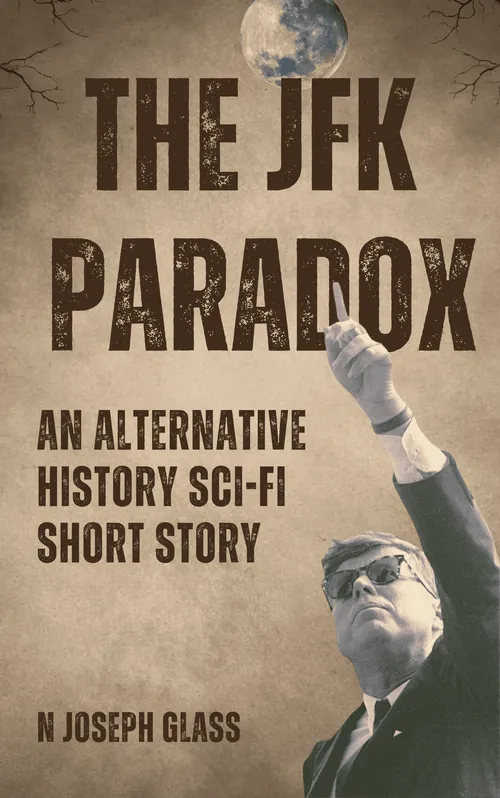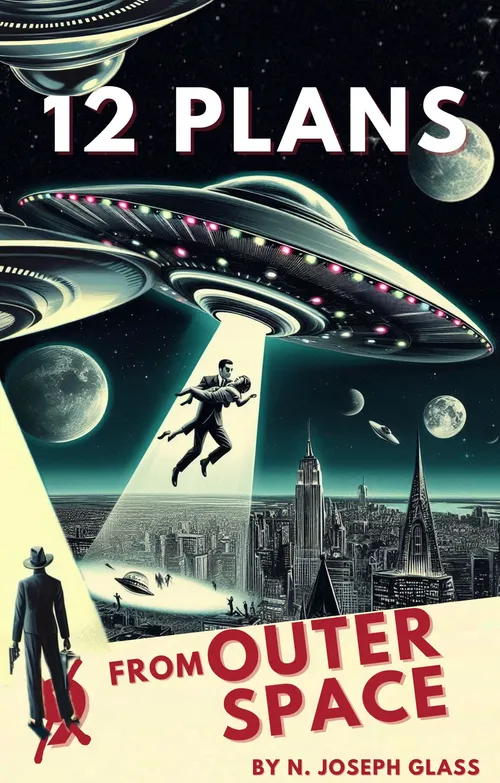IT WOULDN’T BE THE FIRST TIME I DIED. Of course, I am not counting the passing of what some might call my soul, the climatic end of my life’s spark. That flame extinguished when my Ellie was taken from me. I had died in a more ‘physical’ sense three times already.
This time it would not technically be a death, but rather a waking from a daydream, though I would never call it that. You see, my dreams stemmed not from slumber or the fascinations of imagination stirring in my subconscious. In fact, they were not dreams at all. I called them Overlaps.
In my desperation to live up to my hubris, I had vowed to invent time travel to save my beloved life partner, my dear wife, Ellie. No one ever saw me as she did. A simple mugging turned horribly awry, the gun fired, and my life ended—for all intents and purposes. Worshiping myself as my own personal Jesus, I vowed I’d bring her back from the dead. As powers of resurgence never lifted from the pages of Mary Shelley’s masterpiece, The Modern Prometheus—I refused to call it Frankenstein as most people thought it the name of the monster rather than the scientist—into reality, I took another route.
I invented time travel.
My triumph and hopes quickly crumbled under the weight of learning that I could not impact the present or the future through such means. Peter and I came to refer to what we did with my machine as ‘time jumping’ and sold it that way to market Vacations in Time. My business partner, Peter Andrews, rightly took all the credit for taking my “Frankenstein” creation and commercializing it. To me, my time jumping chamber represented my greatest failure.
It could not save Ellie.
When I entered that chamber, I jumped into a memory. More tangible than any metaverse or trænSɛnd experience, I relived palpable moments in time. I traveled to the past. Not as an observer, I traversed my own history as a participant. So, while unable to change what happened to my wife in the real world, normal-time, I learned to extend my stay in the overlaps to up to fifteen years—only a couple of weeks in my world—to spend time with my departed love, reliving memories and making new ones.
It became a drug, my only fix, my sole release from the reality of normal time where living amounted to another kind of death. At times I wanted nothing more than to float away into the void, forgotten like clouds that passed languidly overhead but greedily held their moisture. Unlike Peter, I never mustered the courage, or advanced my depression enough, to put myself out of my pitiful misery. My grief would be mine to hold, to carry through my life. It sentenced me to hermitage—twice.
In my overlaps I lived, loving life to the full. Somewhere in the back of my mind words rang loudly, like the din of a crowd condensed within the melody of song: ‘Life should be fragrant, rooftop to the basement.’ I had heard that old track many times. With my Ellie, life brought such wonderful aromas, and our joy bathed us in constant sunlight. Which represented the end, the rooftop or the basement?
Overlaps always ended.
No matter how frantically I tried, pouring all my heart, mind, and soul, into it, I never managed to stay in an overlap over fifteen years. To accomplish that I had to lay naked in a suspension fluid chamber. And I’d done it often. I’m sure any mental health expert would have told me it was too much, not good for me, I needed to move on, and all that tepid rubbish. No, as rain fell with the sole purpose of nourishing my garden, my overlaps gave me reason to draw breath, to exist.
So many lives I lived with my love, my Ellie. Each time I stopped us from going down that street and lived days to years to a decade and a half, making new memories and experiencing our life together, the lives taken from us on that fateful night under the streetlamp’s ghostly glower. I outsmarted that sinister Spector, left him lurking in the rain-drenched shadows, casting none of his own like a vampire deprived of its next bloody pleasure.
Every overlap ended.
I lost her, repeatedly, grieving a new devastation each time, a hurt so deep I could bury myself in it. Like an addict—it became a dependence, I admit—I found it impossible to stop. Every joyous new moment, every previously unspoken word, every never-before-experienced gentle touch, ended with me alone, coming out of a tank, nude and soaked in the thick fluid that gave me such joys and sucked them out of me in an instant. Perhaps Spector sipped from the tank to take from me what I kept depriving him of each time I saved Ellie.
In that, I had failed. Every time I woke in the tank, Ellie still had died. Nothing could change the past, so I relived it, made it a longer-lasting memory before the pain of loss set in. In the end, I wondered if it had helped me as much as it hurt. In any counseling or self-help book on the stages of grief, none ever listed traveling back in time as one of the coping methods. Perhaps now they will.
I found myself yet again in an overlap, the happiest one I had yet experienced. Like flicking the wall switch, this overlap’s world would darken and disappear as instantly as cutting off a light. Yet I came to suspect this end would be worse than all prior. Worse than when Ellie and I assumed the crash positions—abandoned to feverish fear in seconds by all passengers of flight O-2112—as the frenzy of we’re all about to die washed over everyone like sleeting rain pelting naked skin on a frigid winter day. Of course, after I ‘died,’ I woke in the tank without my Ellie, she had died yet again.
Why had I allowed myself to start a family? In countless overlaps it had always just been the two of us, and that gave us all we needed. We took extravagant vacations, though Ellie kept what she called the ‘flash’ far from her. She happily visited magnificent destinations but refused the glamour or pomp that came with such a lifestyle. As a turtle hid itself from danger, she would lower her head as if to hide its occupant from notoriety.
Had I lost myself so completely to this overlap the lines between the temporary world of my creation and reality had blurred? I wished never to return to normal time, and I tried everything possible and quite a few things beyond that to extend my stay. Nothing worked. I would have to leave—soon.
Too soon.
This time, not only leaving Ellie. What anguish would haunt the rest of my days for leaving her and our two children?
Too many times to count in the last years of this overlap, days dwindling to hours in the tank back in the real world, I second-, third-, and forth-guessed my decision. Why had I told her of my travels? For the first time ever, I broke my number one rule, my self-imposed ‘Prime Directive’ for time jumps. I told someone I was in an overlap, that their world was created as a phantom moment in time, an invisible breeze that may fool the body into feeling cool on a hot day then strip you of the placebo effect as it meandered on its way.
My daughter, so much like me, frightened and delighted Ellie equally. What a brilliant mind my little one had, at such an early age. No doubt she would exceed my genius, if only she had the time and opportunity—both would be robbed from her when my time ran out and I woke from this fairytaleoverlap. At too young an age, she had learned of my life in the real world, my normal-time Ellie’s demise, and my pathetic attempts to change the past, to rewrite history if only a small marginal reference in its limitless volumes.
I spared her the details of all my previous jumps, the overlaps I lived and relived repeatedly, dozens—hundreds if I would be honest—of new lives Ellie and I shared. All my dear Breanie needed to know, I told her. And she didn’t need to know any of it. I needed her to know. And now she knew I would soon leave, her world blackening into oblivion as if it never existed because it never truly did.
While I had jumped back to a real moment in time—as every trip I took in my machine—everything that happened after, though real in the experience for myself and everyone else, ended like a film after the closing credits finished scrolling.
In the real world, normal time, my family would be a memory of people who never truly existed, no more than mere figments of imagination with an equal lack of relevance or meaning to my present timeline.
Unless the memories were the meaning.






This story has not been rated yet. Login to review this story.